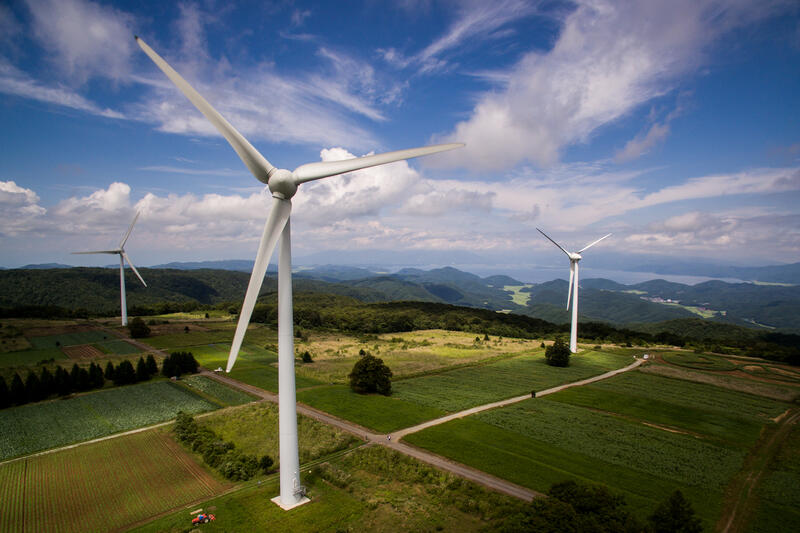The Council of Ministers’ decision to provide permits to three companies aiming to generate electricity from wind power, is considered a strategically important achievement in the energy politics in Lebanon.
It is consistent with the current trend moving towards clean and renewable energy sources and eventually replacing reliance on energy dependent on fossil fuels as well as byproducts of oil and gas.
Even though US President, Donald Trump, has pulled out from the Paris Climate Agreement, we are witnessing on the other hand, strong commitment to it, from all over the world, especially from industrial and developing countries. There are serious efforts to develop policies that strategically support the goals set in place by the Paris Agreement.
The Lebanese government’s decision is important because it comes after the critical energy crisis, that began in the nineties and continues to today, and consequentially resulted in electricity rationing across the country.
The wide scale use of electricity generators throughout every, village, town and city in the country, has left citizens desperate to secure their energy supply needs, not only with hefty utility bills, but burdened with poor environmental and health conditions created by the mere usage of these alternatives.
However, this ambitious and progressive decision may well signal the end of a monopoly on electrical energy production. It shall open the door to further develop diversified energy sources, as well as renewable and clean energy.
According to the Wind Atlas in Lebanon; a project put in place by CEDRO on the 25th of January in 2011, the wind speed in Lebanon can create an acceptable supply of electrical energy in some regions, such as Akkar, where wind speed is around 9-10 m/ sec. These winds can produce 850-1100 KW of electrical energy. Power plants can be built that generate a sufficient supply of energy, with each plant reaching 100 megawatts of electrical energy.
The government’s permission to allow the three companies to generate almost 200 megawatts, will contribute to the electrical power that feeds the national circuit. This will most definitely result in an increased supply of energy. The strategic importance of the decision, lays in its provision of practical evidence that it is indeed, possible to diversify the sources of energy in Lebanon with a progressing increase in the percentage of clean and renewable energy.
Even though, there are attempts to categorize energy generated from waste material as clean and/or renewable, I distinguish between clean and renewable energy (such as wind and solar power, geothermal energy, hydro and wave power) and energy from waste. This grouping has no accurate scientific or environmental justification. All the new strategies that are founded on recycling and green economies, generally work on the factor of gradually decreasing the quantity of wastes. This factor disqualifies it as a source of renewable energy.
Furthermore, we believe this decision which permits production of important wind power in areas where wind speed is relatively high, will provide an opportunity to produce electrical power with lower capacity. However, this will not necessarily respond to the local and central electricity needs, especially in areas where the wind speed is between 5-9 miles/sec.
The work to produce electrical energy from wind, will encourage efforts in developing methods of generating energy from clean and renewable sources, and in activating trials in solar power, which to some extent remain relatively limited, relative to its specific potential. This hopefully will also encourage other trials in producing energy from geothermal and wave sources.
We remain hopeful that this decision will provide incentive to the authorities and organizations concerned with the production of electrical power, (Ministry of Energy and Water, and Electricity of Lebanon) to place serious effort to overcome the obstacles faced by the hydroelectric plants that have resulted in the supply falling short and well below the plant’s full production capacity.











